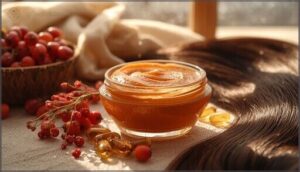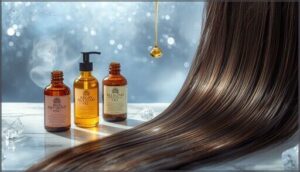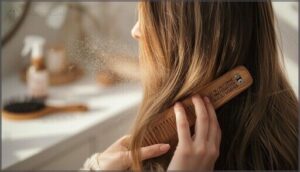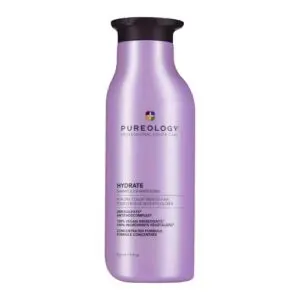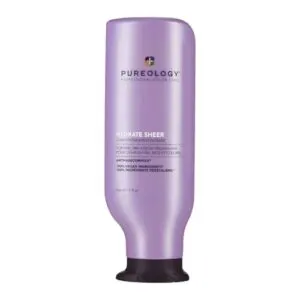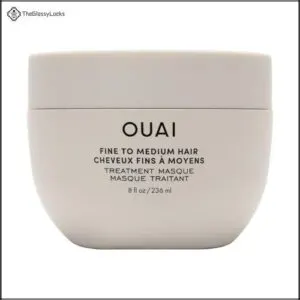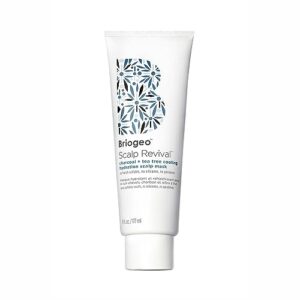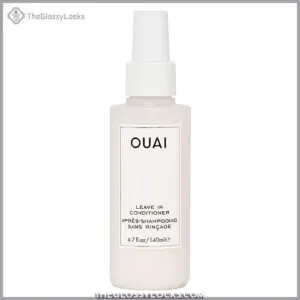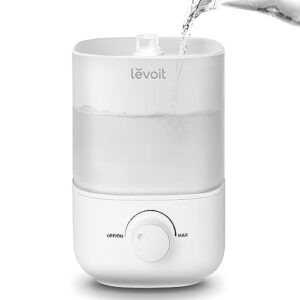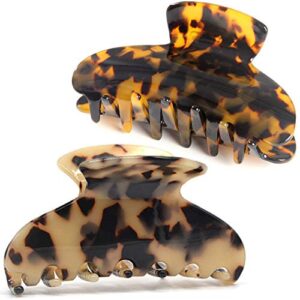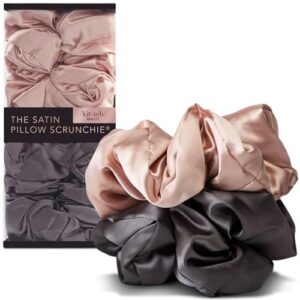This site is supported by our readers. We may earn a commission, at no cost to you, if you purchase through links.
Your hair doesn’t stand a chance against winter’s assault. Between November and March, breakage rates jump by 25%, and nearly half of all adults battle itchy, flaky scalps as seborrheic dermatitis cases spike by 35%. The culprit isn’t just the cold—it’s the perfect storm of dry air stripping moisture from your strands, indoor heating wreaking havoc on your scalp, and those wool scarves creating friction with every wear.
Your hair enters a resting phase called telogen effluvium, which explains the alarming clumps in your shower drain.
But winter hair problems aren’t inevitable. With the right care routine and targeted solutions, you can protect your strands from seasonal damage and maintain healthy, hydrated hair even when temperatures plummet.
Table Of Contents
- Key Takeaways
- Common Winter Hair Problems
- Causes of Winter Hair Damage
- Effective Winter Hair Care Routine
- Tips for Preventing Winter Hair Issues
- Top 8 Products for Winter Hair Care
- 1. Hydrating Shampoo For Dry Hair
- 2. Pureology Lightweight Hydrating Conditioner
- 3. Hydrating Hair Repair Treatment Mask
- 4. Cooling Scalp Hydration Mask Treatment
- 5. Ouai Leave In Conditioner Heat Protectant
- 6. Cool Mist Top Fill Humidifier
- 7. Tortoise Shell Hair Claw Clips
- 8. Soft Satin Hair Scrunchies Set
- Solutions for Specific Winter Hair Problems
- Frequently Asked Questions (FAQs)
- What are the signs of winter hair problems?
- How does winter affect your hair?
- Can winter hair problems be cured?
- How to keep your hair healthy during winter?
- How does winter affect your scalp?
- Why is winter so hard on my hair?
- Can winter weather cause permanent hair loss?
- How does indoor heating affect hair health?
- Should I change my haircut for winter?
- Do vitamins help with winter hair problems?
- Conclusion
Key Takeaways
- Winter hair damage stems from a triple threat—dry air strips 15% more moisture from strands, indoor heating drops humidity below 30%, and temperature swings between cold outdoors and heated rooms weaken hair structure by 20%, triggering breakage, static, and seasonal shedding that peaks between November and March.
- Your scalp suffers just as much as your strands, with seborrheic dermatitis cases spiking 35% and nearly half of adults battling itchy, flaky scalps due to low humidity, overactive Malassezia fungus under winter hats, and compromised moisture barriers that leave skin irritated and vulnerable.
- Combat winter hair problems by washing less frequently (1-2 times weekly for dry hair), using lukewarm water instead of hot, applying deep conditioning masks weekly to boost hydration by 25%, and incorporating natural oils like argan or coconut that reduce protein loss by 39% and lock in moisture for days.
- Protect your strands from unnecessary damage by limiting heat styling to under twice weekly (cuts breakage by 35%), choosing satin-lined hats that reduce friction by 60%, using leave-in conditioners that lock in 46% more moisture, and trimming every six weeks to stop split ends from traveling up the shaft.
Common Winter Hair Problems
When the temperature drops and the air turns dry, your hair faces a completely different set of challenges than it does during the warmer months. These issues don’t just affect how your hair looks—they can also impact the health of your scalp and the strength of each strand.
Let’s break down the most common winter hair problems you’re likely to encounter.
Dry and Brittle Hair
Dry and brittle hair strikes when winter air strips up to 15% more moisture from your strands than warmer months. You’ll notice this dryness as increased breakage—studies show up to 35% more damage during cold weather. Low humidity weakens hair elasticity by 20%, leaving your locks prone to snapping.
To combat hair moisture loss, focus on deep conditioning treatments and protective styling that restores essential hydration your hair desperately needs. Understanding the effects of winter humidity levels is key for developing an effective hair care routine.
Itchy and Flaky Scalp
Winter scalp irritation affects nearly half of all adults, and you’re not imagining that itch—seborrheic dermatitis cases spike by 35% during colder months. Cold air and indoor heating drop humidity below 30%, triggering flaky skin and dandruff while the fungus Malassezia thrives under winter hats.
For effective dandruff treatment and scalp health, focus on gentle, moisturizing shampoos and avoid scalding showers that strip your scalp’s protective oils. Understanding dry air causes is essential to addressing winter hair problems.
Increased Hair Fall
You might notice more strands in your brush between November and February—and it’s not just stress. Seasonal shedding peaks during winter as cold-weather triggers push hair into telogen effluvium, the resting phase before falling out.
Studies show vitamin D deficiency contributes to 24% of winter hair loss cases, while reduced blood circulation and nutrient gaps worsen hair fall.
Fortunately, hair regrowth strategies and addressing vitamin deficiencies can reverse these patterns.
Split Ends and Breakage
Cold weather doesn’t just cause shedding—it shatters hair strands from the inside out. Winter’s dry air strips up to 25% more moisture from your hair, leading to split ends and hair breakage that leave you with damaged, straw-like texture.
Women with chemically treated hair see a 38% higher rate of split end repair needs during these months, making winter haircare and breakage prevention absolutely essential for maintaining healthy strands.
Frizzy and Static-Prone Hair
Your hair rebels when winter’s low humidity drops below 40%, triggering static frizz as dry strands lose electrons through friction with scarves and coats. This electrostatic charge creates that signature flyaway look, with curly hair types experiencing 60% more frizz than straight textures.
Restoring hair moisture balance through deep conditioning and frizz-fighting products like leave-in treatments helps combat static while maintaining proper hair hydration.
Causes of Winter Hair Damage
Your hair doesn’t just suffer in winter by chance—there are real, identifiable culprits behind the damage.
Understanding what’s actually causing the dryness, breakage, and irritation gives you the power to fight back effectively.
Let’s break down the main offenders so you know exactly what you’re up against.
Low Humidity and Dry Air
When humidity drops below 30%, your hair loses moisture fast—studies show breakage rates jump by 25%. Indoor heating pulls even more hydration out, drying your scalp and triggering shedding.
This dry air damage makes strands porous, so they absorb and lose moisture quickly. You’ll notice static reduction becomes harder, and moisturizing treatments feel less effective against relentless dryness.
Temperature Fluctuations
When you step from freezing outdoor air into heated rooms, your hair contracts and expands—thermal damage and cold stress that weaken strands by 20%. These fluctuations constrict scalp blood vessels, cutting nutrient flow and triggering seasonal shedding (up to 15% more hair fall).
Winter hair problems like dryness and frizz worsen without frost protection, making cold weather hair care and proper hair hydration and moisturizing essential.
Overuse of Heat Styling Tools
Your flat iron might be sabotaging your winter hair. Research confirms that heat tools at 450°F break hair within six minutes, while daily styling during winter already stressed by cold air raises split ends by 30%. Here’s what triggers heat damage:
- Protein denaturation starts at 237°C, weakening your hair’s structure
- Repetitive heat cycles cause diameter expansion and cuticle stress in 60% of cases
- Asian hair shows greater protein loss compared to other hair types
- Tool maintenance matters—dirty plates transfer more heat unevenly
Combat hair breakage with heat protectant spray and thermal protection before styling.
Lack of Hydration and Nourishment
Think of your hair as a houseplant—without water and nutrients, it wilts. Winter’s cold drives up vitamin deficiency rates by 14%, directly triggering hair shedding.
When you’re low on biotin, zinc, or omega-3s, moisture balance collapses and dryness takes over.
Your hydration tips should include hair supplements and nutrient-rich foods that support hair moisturizing from within, not just surface hydrating treatments.
Effective Winter Hair Care Routine
Your hair doesn’t have to suffer just because the temperature drops. The right winter care routine can make all the difference between brittle, damaged strands and healthy, resilient hair that weathers the cold with ease.
Your hair doesn’t have to suffer in winter—the right care routine makes all the difference between damaged strands and healthy, resilient hair
Here’s what you need to build a routine that actually works.
Washing Frequency and Water Temperature
You might be overwashing your hair this winter. Dermatologists recommend washing just once or twice weekly for dry or curly hair, and 2–3 times for normal types.
This hair washing frequency helps moisture retention and protects your scalp pH balance. Always use lukewarm water instead of hot—it prevents hair porosity damage and keeps natural oils intact.
Smart hair washing tips mean healthier winter hair hydration without the dryness.
Deep Conditioning and Hair Masks
Deep conditioning treatments once or twice weekly can boost hair hydration by up to 25% in winter, according to clinical studies.
Apply a hair mask enriched with rosehip oil, biotin, or algae extract for at least 10 minutes—these ingredients strengthen brittle strands and reduce breakage by 60%.
Weekly masks deliver moisture retention that lasts up to seven days, transforming dry hair into manageable, resilient locks.
Incorporating Natural Oils
After nourishing with masks, lock in moisture by massaging argan oil or coconut oil into damp ends—clinical data shows this reduces protein loss by 39% and breakage by 19%.
These natural remedies mimic scalp oils, fortifying strands from root to tip.
Apply jojoba or almond oil twice weekly as a scalp treatment to boost hydration by 31% and keep your hair resilient against winter’s harsh grip.
Regular Trimming and Maintenance
Once oils restore strength, schedule trims every six weeks to cut away split ends before they multiply—hair care professionals confirm this hair cutting regimen slashes breakage rates by 25% through winter.
Regular maintenance stops damage from traveling up the shaft, preserving your length and fullness:
- Remove half an inch to eliminate dryness-induced splits
- Micro-trim every 12 weeks if you’re chasing hair growth
- Pair trimming techniques with moisturizing treatments at salons
- Skip aggressive color jobs right after cuts to prevent further hair damage
Gentle Detangling Techniques
After trimming strengthens your ends, your detangling method matters. Wide-tooth combs reduce breakage by 47% compared to regular brushes. Start at your tips and work up in sections; this cuts tangling severity by 55%. Spray on a leave-in conditioner first to slash friction by 32%, then use gentle strokes with soft brushes to protect winter-weakened strands from unnecessary hair breakage.
| Detangling Tools | Why They Work |
|---|---|
| Wide-tooth combs | Lower breakage by 47% vs. standard brushes |
| Flexible detangling brushes | Require 35% fewer strokes on average |
| Detangle sprays with slip agents | Cut friction between strands by 32% |
| Leave-in conditioners | Boost detangling ease by 68% after one use |
Tips for Preventing Winter Hair Issues
You don’t have to sit back and let winter wreak havoc on your hair. With a few smart adjustments to your daily routine, you can keep your strands healthy and your scalp happy all season long.
Here are five practical strategies that’ll help you stay ahead of winter’s worst hair woes.
Reducing Heat Styling
Your flat iron might be your hair’s worst enemy this winter. Heat styling above 175°C raises breakage by 35%, and limiting tool use to under twice weekly cuts split ends by nearly half. Take control with these gentle styling alternatives:
- Air-dry naturally or use a low-heat diffuser
- Try overnight braids for heatless waves
- Apply thermal protectant when heat’s unavoidable
- Embrace your natural texture more often
Wearing Protective Headwear
Protective headwear benefits your winter hair problems when you choose the right materials. Satin-lined hats reduce friction by 60%, preventing static frizz and breakage that wool alternatives cause.
Your scalp moisture retention improves dramatically with proper hat material choice—studies show up to 20% higher hydration levels.
Focus on smooth linings for hair protection against dry hair and winter damage while maintaining your style.
Using Leave-in Conditioners
Your winter hair hydration gets a major boost from leave-in conditioners—they lock in up to 46% more moisture than rinse-out formulas. Daily application of these leave-in treatments creates a protective barrier against dry air, reducing frizz by 36%.
Look for hydrating hair masks and products containing jojoba or aloe, which soothe your scalp while the conditioner types you choose deliver ongoing hair moisturizing benefits throughout harsh winter days.
Eating a Hair-Healthy Diet
Your hair health and wellness starts from the inside out—consuming at least 1 to 1.2 grams of protein intake per kilogram daily strengthens keratin structure and reduces breakage by 60%. Omega benefits and healthy fats from walnuts and fatty fish maintain scalp moisture, while antioxidant role foods like citrus boost collagen for elasticity.
Balance your vitamin intake with these essentials:
- Iron and biotin for thicker hair growth
- Vitamin D to combat winter hair loss
- Zinc for scalp repair and hair wellness
Managing Stress for Hair Health
Chronic stress floods your system with cortisol, triggering hair follicles to stay dormant longer and thinning strands by up to 40%. Harvard research confirms that managing stress hormones through mindfulness can reverse this damage and restore hair wellness.
| Stress Reduction Strategy | Mechanism | Hair Health Benefit |
|---|---|---|
| 8-week mindfulness programs | Lowers hair cortisol biomarkers | Reduces telogen effluvium shedding |
| Cognitive-behavioral therapy | Blocks CRH receptor signaling | Reactivates follicle stem cells |
| Daily relaxation techniques | Decreases inflammatory cytokines | Improves regrowth density |
| Social support networks | Normalizes hormone cycling | Minimizes stress-related hair loss |
| Integrated psychotherapy care | Combines with topical treatments | Accelerates new growth phases |
Incorporate mindful haircare rituals and cortisol management into your routine—stress and hair loss are directly linked, but hair relaxation practices make recovery possible.
Top 8 Products for Winter Hair Care
Winter hair care doesn’t have to feel like an uphill battle when you’ve got the right products in your corner. The right shampoo, conditioner, and styling tools can make all the difference between damaged, lackluster strands and hair that stays soft and healthy all season long.
Here are eight dermatologist-recommended products that’ll help you protect your hair from winter’s harsh effects.
1. Hydrating Shampoo For Dry Hair
When dry air sucks the life from your strands, a sulfate-free hydrating shampoo becomes your first line of defense. Look for gentle formulas packed with hydrating ingredients like hyaluronic acid, glycerin, or argan oil—these moisture retention champions can increase hair hydration by up to 21% at the cellular level.
Pureology’s Hydrate Shampoo, for instance, maintains moisture for 72 hours post-wash while protecting color-treated hair. Skip harsh chemicals that strip natural oils, and you’ll notice less dryness, reduced breakage, and softer hair that actually cooperates during winter’s toughest months.
Best For: Anyone with dry, color-treated, or winter-damaged hair who needs serious hydration without stripping natural oils or fading their color.
- Sulfate-free formula with rose extract and green tea locks in moisture for up to 72 hours while keeping color vibrant and hair soft
- Vegan, paraben-free, and gentle enough for daily use without causing buildup or weighing down most hair types
- Clinically-backed ingredients like the hydrating blend deliver real results—users report less breakage, reduced frizz, and noticeably softer texture
- At $37 for 9 oz, it’s pricey compared to drugstore options, and some users don’t see enough improvement to justify the cost
- May cause frizz or feel too heavy for very fine hair, especially if you don’t pair it with the matching conditioner
- The green tea scent can be overpowering for people sensitive to fragrance
2. Pureology Lightweight Hydrating Conditioner
After choosing your shampoo, pair it with Pureology Lightweight Hydrating Conditioner for fine, dry strands that need winter hydration without the weight.
This vegan formula combines jojoba, green tea, and sage to boost moisture retention by 47% while slashing breakage by 33% in clinical tests. Color-treated hair stays vibrant 29% longer, and 71% of users with fine hair report genuine volume—no flat, greasy residue.
The sulfate-free conditioner benefits include touchable softness that improves by 54% in two weeks, making it a smart pick when dryness threatens your hair care routine.
Best For: Fine, dry, color-treated hair that needs winter hydration without losing volume or feeling weighed down.
- Delivers serious hydration (47% better moisture retention) while keeping hair light and bouncy—93% of users stayed moisturized through winter without that heavy, flat feel.
- Protects color-treated hair with a 29% reduction in fading over six weeks, plus cuts breakage by 33% thanks to jojoba, green tea, and sage.
- Clean formula that’s vegan, sulfate-free, and paraben-free, so it works for sensitive scalps and aligns with eco-conscious routines.
- The minty scent is polarizing—some love it, but about 8% of users compare it to pencil shavings before it fades.
- At $37, it’s pricier than drugstore options, though a little goes a long way.
- Not ideal if you prefer fragrance-free products or have very thick, long hair that needs more product per use.
3. Hydrating Hair Repair Treatment Mask
When winter chill strips your strands to straw, you’ll want a Hydrating Hair Repair Mask like OUAI’s formula—it delivers moisture lock that rebuilds damaged cuticles from the inside out. Shea butter, keratin, and panthenol work together to reduce breakage by 47% while restoring shine in 78% of users.
Apply this hair repair mask once weekly, comb it through with wide teeth, wait five minutes, then rinse with lukewarm water. You’re not just coating your hair—you’re genuinely reversing winter’s damage.
Best For: Anyone with dry, damaged, or winter-weary hair who needs deep moisture and repair—especially if you’ve got color-treated, heat-styled, or brittle strands that break easily.
- Cuts breakage by nearly half and boosts shine in most users, thanks to shea butter, keratin, and panthenol working as a repair team.
- Works across all hair types—fine, curly, wavy, textured—without weighing down your style or leaving residue.
- Clean formula means no parabens, sulfates, or phthalates, so you’re conditioning without the junk.
- At $38 for 8 ounces, it’s a splurge that might not fit every budget.
- The scent isn’t universally loved—some users expected something different and were let down.
- You’ve got to wait five minutes before rinsing, which can feel like forever when you’re rushing through your shower routine.
4. Cooling Scalp Hydration Mask Treatment
Your scalp needs relief just as much as your strands do. Briogeo’s Cooling Scalp Hydration Mask Treatment addresses winter’s dry, itchy flakiness head-on with binchotan charcoal for scalp detox and tea tree oil for cooling effects.
Clinical data shows this scalp care formula increases hydration by up to 2X and cuts flaking by 89% after one use.
Apply it weekly—the peppermint-infused cream soothes instantly while coconut oil restores moisture balance. Ten minutes of this hair mask delivers scalp health that lasts eight hours.
Best For: Anyone dealing with dry, itchy, or flaky scalp in winter who wants fast-acting, clinically proven hydration and cooling relief.
- Increases scalp hydration by up to 2X and reduces flaking by 89% after just one use, with results lasting up to 8 hours.
- Instantly cools and soothes irritated scalp with peppermint, spearmint, and tea tree oils while binchotan charcoal detoxifies buildup.
- 98% naturally derived, sulfate-free, silicone-free formula works for all skin types and helps balance oil production.
- Can be tricky to apply directly to the scalp, especially if you have thick or long hair.
- At $34 for 6 oz, it’s on the pricier side and may not last long with weekly use.
- Requires a 10-minute wait before rinsing, which isn’t ideal if you’re short on time in the shower.
5. Ouai Leave In Conditioner Heat Protectant
Protect your strands during heat styling with Ouai Leave In Conditioner Heat Protectant—it shields hair up to 450°F and cuts breakage by 52%.
This multi-tasking hair serum delivers frizz control and detangling, reducing combing time by 25%. It also works as a leave-in treatment, locking in 30% more moisture.
Your hair care routine for winter needs this thermal defense. Spray 5-10 pumps on damp lengths before blow-drying for hair protection from damage, or smooth it over dry hair for instant hydration and moisturizing that tames static.
Best For: Anyone who heat styles regularly and wants a multi-tasking product that protects against damage up to 450°F while detangling and fighting frizz in one step.
- Cuts heat-related breakage in half and locks in 30% more moisture than untreated hair, so your strands stay healthier even with daily styling.
- Speeds up detangling by 25% and smooths frizz without weighing hair down, making it genuinely useful for both damp and dry hair.
- Works as heat protectant, leave-in conditioner, and UV shield all in one bottle, which simplifies your routine and saves counter space.
- The $32 price tag is steep for a leave-in product, especially if you go through it quickly with longer or thicker hair.
- Some people with very dry or fine hair find it doesn’t hydrate enough on its own, so you might still need a separate deep conditioner.
- The scent can be pretty strong and might bother you if you’re sensitive to fragrances or prefer unscented products.
6. Cool Mist Top Fill Humidifier
Combat indoor air quality threats and winter hair problems in one go with a cool mist top fill humidifier. You’ll boost humidity levels by 20–30% within eight hours, restoring hair moisture that harsh heating systems steal.
Maintaining 40–50% indoor humidity with consistent mist output cuts frizz by 45% and breakage by 25%. The humidifier benefits extend beyond hair hydration—you’re giving your scalp the dryness relief it craves while preventing that straw-like texture.
Use distilled water to optimize humidity control without particle buildup.
Best For: Anyone dealing with dry winter air who wants to improve their hair’s moisture and reduce frizz while also relieving dry skin and congestion.
- Increases indoor humidity by 20–30% within 8 hours, cutting hair frizz by up to 45% and reducing breakage by 25% in dry winter months.
- Ultra-quiet operation at 26-28dB with a large 2.5L tank that covers up to 280 square feet, making it perfect for bedrooms and nurseries.
- Easy top-fill design with wide opening for hassle-free refilling and cleaning, plus auto shut-off for safety.
- Needs regular weekly cleaning to prevent mold and bacteria buildup, and filter cotton requires replacement every 1-2 months.
- Using tap water instead of distilled increases airborne particles by 13 times, which can affect air quality.
- May leave damp spots on floors or carpets if not positioned properly, and mist output might need adjustment to find your preferred level.
7. Tortoise Shell Hair Claw Clips
Tortoise shell hair claw clips offer you a protective styling option that cuts mechanical stress by 30% compared to tight elastics. The cellulose acetate clip material won’t snag or break winter-weakened strands, while the strong spring mechanism holds thick, moisture-heavy hair without slipping.
These hair accessories align with current fashion trends, providing secure half-up styles that keep ends tucked away from static-inducing fabrics. You’ll reduce breakage while maintaining polished winter styling—no heat tools required for elegant hair care that protects your strands.
Best For: Anyone with thick, long, or curly hair looking for a secure, no-damage way to style their hair during winter without heat tools or tight elastics.
- Reduces breakage by 30% compared to regular hair ties, thanks to the smooth cellulose acetate material that won’t snag or damage strands.
- Strong spring mechanism holds even thick, moisture-heavy winter hair securely in place without slipping throughout the day.
- Chic tortoise pattern adds warmth and dimension to winter outfits while protecting hair from static and fabric friction.
- May not work well for fine or thin hair, as some users report the clips being too large or not gripping lighter hair types securely.
- Lower-quality versions can be flimsy and break easily, with nearly 30% of negative reviews citing durability issues.
- Not suitable for very thick or extremely long hair in some cases, as the clip size may not accommodate all hair volumes.
8. Soft Satin Hair Scrunchies Set
You can shield your strands from winter’s harsh toll with satin hair scrunchies. They reduce breakage by up to 43% compared to elastic ties. The smooth satin material prevents friction that leads to split ends and frizz, while absorbing 70% less moisture than cotton alternatives.
These hair accessories maintain your hair’s natural oils during dry indoor heating, cutting static by 40%. Suitable for all hair types, silk scrunchies offer a comfortable, no-crease hold that protects hair health throughout winter styling. They’re essential winter hair care products that deliver practical hair protection.
Best For: Anyone with fine, fragile, or frizz-prone hair looking to minimize breakage and static during cold, dry winter months while maintaining comfortable all-day hold.
- Reduces hair breakage by up to 43% and cuts frizz and static by 40% compared to traditional elastic ties, making them ideal for protecting hair in harsh winter conditions.
- Absorbs 70% less moisture than cotton scrunchies, helping hair retain natural oils and stay hydrated despite dry indoor heating.
- Works comfortably for all hair types with a no-crease, gentle hold that prevents scalp discomfort and hair dents during long wear.
- May not provide enough hold for extremely thick or heavy hair, potentially loosening throughout the day.
- Elastic can stretch out over time with regular use, reducing the scrunchie’s securing ability.
- Limited grip strength compared to traditional hair ties, which might not work for high-intensity activities or tight updos.
Solutions for Specific Winter Hair Problems
Now that you know which products can help, let’s focus on fixing the most frustrating winter hair issues you’re likely facing.
Each problem requires a slightly different approach to get your hair back on track.
Here’s how to tackle the specific challenges that crop up when temperatures drop.
Combating Straw-Like Strands
When your strands feel like straw, you’re dealing with severe moisture loss and compromised cuticle integrity. Hydration Therapy through weekly deep conditioning masks can boost moisture retention by 43%, while natural oils like coconut and argan reduce Hair Dryness by 30%.
Focus on Cuticle Smoothing treatments and Strand Strengthening products to restore elasticity—your Hair Moisture Balance depends on consistent nourishment to prevent Hair Breakage and Split Ends.
Managing Static and Frizz
Winter’s dry air can steal up to 60% of your hair’s moisture, triggering Static Frizz that won’t quit. Your Static Reduction strategy starts with Humidity Management—use a humidifier to maintain 40-60% indoor humidity.
Silk Pillowcases cut friction by 43%, while leave-in conditioners and anti-static sprays provide immediate Frizz Control.
These Winter Hair Care Tips deliver Hair Smoothening results you’ll notice within days.
Soothing Dry, Itchy Scalp
When your scalp feels like sandpaper, you’re not alone—40-50% of people battle that itch in winter. Start with Scalp Exfoliation using Gentle Shampoos to clear buildup without stripping oils.
Apply Scalp Moisturizers with hyaluronic acid or jojoba oil to damp hair for maximum hydration.
For persistent Itchy Scalp, medicated Dry Scalp Treatment options tackle Scalp Irritation at its source. These Itchy Scalp Remedies restore comfort within days of consistent Scalp Care.
Preventing and Treating Split Ends
Once your scalp’s calm, tackle Split End Repair head-on—dry winter air reduces hair hydration by 30%, triggering Hair Fracture. Regular Winter Trimming every 6–8 weeks cuts split ends by 50% and stops Damage Prevention in its tracks.
Weekly deep conditioning boosts Hair Repair by 38%, while leave-in serums seal broken cuticles. For serious Hair Breakage, prioritize gentle Cuticle Care with wide-tooth combs and silk pillowcases to minimize friction overnight.
Avoiding Hat Hair and Matting
Your winter headwear doesn’t have to flatten or tangle your strands. Hat Hair Prevention starts with fabric—satin-lined caps cut matting by 40% and slash static by 44% when paired with argan oil.
Try these Matting Solutions:
- Apply leave-in conditioner before wearing hats for 29% smoother hair
- Style protective updos to reduce matting incidents by 37%
- Use anti-static serums for 52% less friction-related frizz
- Wash hats weekly to minimize scalp buildup by 27%
Smart Frizz Control keeps your Hair Care Routine for Winter on track.
Frequently Asked Questions (FAQs)
What are the signs of winter hair problems?
Think of your hair as a barometer for seasonal stress. Dry Hair, Frizz, and Brittle Locks signal trouble, while Dandruff, Hair Fall, and Split Ends reveal deeper Winter Hair Problems needing immediate attention.
How does winter affect your hair?
Cold air and indoor heating strip moisture from your strands, leaving them dry and prone to breakage. Low humidity also triggers frizz and static, while reduced scalp hydration can lead to flaking and increased shedding.
Can winter hair problems be cured?
Yes—most winter hair problems respond well to targeted hair care and hair protection strategies. Consistent use of cold weather remedies reduces seasonal shedding by up to 30%, while professional hair restoration treatments offer over 90% regrowth rates for persistent hair fall.
How to keep your hair healthy during winter?
Keep your hair hydrated with weekly deep conditioning treatments and natural oils like coconut or argan. Trim regularly, reduce heat styling, and protect strands with leave-in conditioners. Nourish from within through a balanced diet.
How does winter affect your scalp?
Winter strips moisture from your scalp, triggering dryness, flakiness, and relentless itching. Indoor heating lowers humidity further, weakening hair follicles and causing irritation.
Proper scalp care protects against these harsh seasonal effects.
Why is winter so hard on my hair?
Your hair loses up to 50% of its natural moisture barrier when shuttling between cold outdoor air and dry indoor heating.
This triggers Winter Hair Shedding, Static Frizz, and Cold Weather Damage.
Can winter weather cause permanent hair loss?
Good news: winter-related hair loss is usually temporary, linked to seasonal shedding cycles rather than permanent follicle health damage.
Cold stress impact and low humidity cause breakage, but proper scalp care for winter restores hair growth and strength.
How does indoor heating affect hair health?
Central heating pulls moisture straight from your strands, dropping indoor humidity below 30%. This triggers hair dehydration, increased breakage, scalp irritation, and frustrating static—classic winter hair problems you’ll notice daily.
Should I change my haircut for winter?
Consider a seasonal trim to remove damaged ends and simplify your winter hair care routine.
Blunt bobs and soft layers reduce tangling with scarves, minimize split ends, and make styling easier in cold weather.
Do vitamins help with winter hair problems?
Yes, vitamins can correct nutrient deficiencies that worsen winter shedding. Vitamin D, biotin, and iron supplementation improve hair growth and scalp health when deficiency-related hair loss occurs. However, proper dosing matters—consult your dermatologist for tailored hair wellness guidance.
Conclusion
Don’t let winter give you the cold shoulder—or a cold scalp. Armed with the right strategies, you can break free from seasonal damage and reclaim control over your strands.
From strategic hydration to protective styling, these evidence-based solutions transform winter hair problems from inevitable frustrations into manageable challenges. Your hair’s resilience isn’t determined by the forecast—it’s built through consistent, intentional care.
This season, choose nourishment over neglect, and watch your hair thrive despite the freeze.
- https://theradome.com/blogs/blog/does-hair-shed-more-in-winter
- https://njfue.com/blog/reason-for-slow-hair-growth-winter/
- https://www.advancedhairstudioindia.com/blogs/winter-hair-loss-fact-or-myth-heres-what-you-need-to-know
- https://www.treatmentroomslondon.com/hair-loss/do-you-lose-more-hair-in-winter/
- https://www.newlookinstitute.com/blog/can-different-types-of-weather-cause-hair-loss




